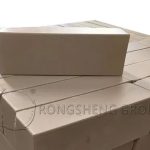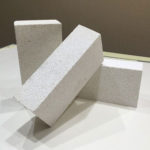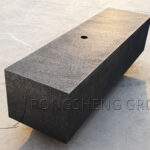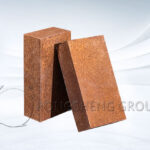In industrial settings, the battle against corrosion is a never-ending challenge. The presence of harsh chemicals, extreme temperatures, and aggressive environmental conditions can quickly degrade materials, leading to structural failures, costly repairs, and operational downtime. In such environments, the choice of construction materials becomes critical. Among the most effective solutions are acid resistant bricks—a specialized type of brick designed to offer superior chemical durability and corrosion resistance. These bricks play a crucial role in protecting structures from the damaging effects of corrosive substances, making them indispensable in various industrial applications.
Understanding Acid Resistant Bricks
Acid resistant bricks are a class of bricks specifically engineered to withstand exposure to acidic substances and other corrosive chemicals. Unlike ordinary bricks, which can deteriorate when exposed to acids, acid resistant bricks are made from materials that are inherently resistant to chemical attack. These materials typically include flint, clay, and silica, which are processed at high temperatures to form bricks with exceptional durability and strength. The result is a brick that can endure harsh chemical environments without losing its structural integrity.
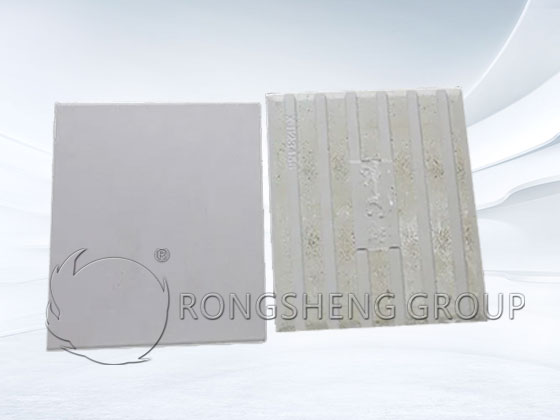
The Importance of Chemical Durability in Harsh Environments
Chemical durability refers to a material’s ability to resist degradation when exposed to chemicals. In industrial settings, where acids, alkalis, and other corrosive substances are frequently present, chemical durability is a critical property. Without it, materials can quickly corrode, leading to structural failures and posing significant safety risks. Acid resistant bricks are specifically designed to offer this chemical durability, making them ideal for use in environments where exposure to corrosive substances is inevitable.
1. Protection Against Acidic Attack
One of the primary reasons for using acid resistant bricks in industrial applications is their ability to protect against acidic attack. In many industries, such as chemical processing, petrochemicals, and pharmaceuticals, strong acids like sulfuric acid, hydrochloric acid, and nitric acid are commonly used. These acids can cause severe damage to conventional construction materials, leading to corrosion, cracking, and eventual failure.
Acid resistant bricks are formulated to resist these acidic substances, preventing them from penetrating the material and causing damage. This resistance is achieved through the careful selection of raw materials and the firing process, which ensures that the bricks have a dense, non-porous structure that is impervious to acids. By using acid resistant bricks, industries can protect their structures from the corrosive effects of acids, extending the life of their equipment and infrastructure.
2. Enhancing Corrosion Resistance
Corrosion is a major concern in any environment where chemicals are present. It not only weakens materials but also compromises the safety and efficiency of industrial operations. Acid resistant bricks are specifically designed to enhance corrosion resistance, making them an essential component in the construction of industrial facilities.
The corrosion resistance of acid resistant bricks is not limited to acids alone. These bricks also offer protection against alkalis, salts, and other corrosive chemicals, making them suitable for a wide range of applications. For example, in wastewater treatment plants, where both acidic and alkaline substances may be present, acid resistant bricks provide a durable lining that prevents corrosion and ensures the long-term performance of the facility.
3. Applications in High-Temperature Environments
In addition to their chemical durability, acid resistant bricks are also known for their ability to withstand high temperatures. This makes them ideal for use in environments where both corrosive chemicals and extreme heat are present, such as in furnaces, kilns, and reactors.
High-temperature resistance is a crucial property in many industrial processes, as exposure to heat can exacerbate the effects of chemical corrosion. Acid resistant bricks are fired at high temperatures during their manufacturing process, which enhances their ability to endure thermal stress without cracking or deteriorating. This makes them an excellent choice for lining high-temperature equipment, where they provide both chemical and thermal protection.
4. Durability in Abrasive Conditions
Many industrial environments involve not only chemical exposure but also abrasive conditions. In industries such as mining, cement, and steel, surfaces are often subjected to mechanical wear and tear, in addition to chemical attack. Acid resistant bricks are designed to withstand these abrasive conditions, offering a durable solution that can endure both chemical and mechanical stress.
The durability of acid resistant bricks in abrasive conditions is due to their dense, hard structure, which resists both chemical penetration and physical wear. This makes them suitable for use in high-wear areas, such as floors, walls, and ducts, where they provide long-lasting protection against both corrosion and abrasion.
5. Reducing Maintenance and Repair Costs
One of the significant advantages of using acid resistant bricks is the potential for reducing maintenance and repair costs. In environments where corrosion is a constant threat, structures made from conventional materials may require frequent repairs or replacements, leading to high operational costs and downtime. Acid resistant bricks, with their superior durability and corrosion resistance, can significantly reduce the need for maintenance.
By preventing chemical damage and prolonging the life of industrial structures, acid resistant bricks help facilities avoid costly repairs and minimize disruptions to operations. This not only saves money but also ensures that the facility remains operational and productive over the long term.
6. Environmental and Safety Considerations
In addition to their functional benefits, acid resistant bricks also contribute to environmental and safety goals. By preventing corrosion and the associated risks of structural failure, these bricks enhance the safety of industrial operations, protecting both workers and the environment.
Furthermore, many manufacturers of acid resistant bricks are committed to sustainable practices, using recycled materials and energy-efficient production methods. This makes acid resistant bricks an environmentally friendly choice for industries seeking to reduce their environmental footprint while maintaining high standards of safety and durability.
Acid Resistant Bricks Offer a Reliable Solution
In harsh industrial environments, where exposure to corrosive substances is a constant challenge, the importance of chemical durability and corrosion resistance cannot be overstated. Acid resistant bricks offer a reliable solution to these challenges, providing superior protection against acids, alkalis, and other corrosive chemicals. Their ability to withstand high temperatures, abrasive conditions, and chemical attack makes them indispensable in a wide range of industrial applications.
By investing in acid resistant bricks, industries can protect their structures from the damaging effects of corrosion, reduce maintenance and repair costs, and ensure the long-term safety and efficiency of their operations. In environments where corrosion is a significant concern, acid resistant bricks are not just a choice—they are a necessity for maintaining the integrity and longevity of industrial infrastructure.
Leave Your Requirements on RS Kiln Refractory Bricks And Castable Materials! We Will Reply You In 12 Hours!:
